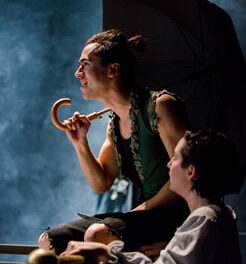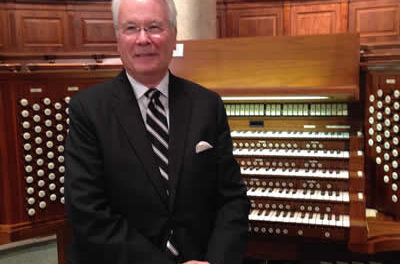On any orchestra concert, it’s a pleasant surprise to see a program consisting entirely of pieces from the 20th and 21st centuries. On a concert from a so-called “Classics Series,” the surprise is even sweeter.
There was no Beethoven, no Berlioz, and no Tchaikovsky on the Winston-Salem Symphony’s Sunday afternoon concert. Taking their place were Mahler, Barber, and Bates. For a “Classics” concert, these are challenging composers; but Maestro Robert Moody and the WSS showed us that orchestral masterpieces didn’t end with the Romantic era.
Mason Bates is a native of Virginia but no stranger to North Carolina. As a teenager he attended the prestigious Brevard Music Festival, where he met then-assistant-conductor Robert Moody. Later Moody and Bates would become friends, and in 2006 Moody and the WSS premiered Bates’ “Rusty Air in Carolina“.
Adding an electronic backing track to the usual full orchestra, “Rusty Air in Carolina” constructs a dreamy, nostalgic atmosphere around field recordings of North Carolina’s famous cicadas and katydids. “Rusty Air” is a lovely and colorful journey through cherished memories, and the orchestra brought it lovingly to life.
Samuel Barber is one of those unfortunate composers whose wide and impressive oeuvre is overshadowed by one smash hit. His “Adagio for Strings” is rightly famous, but the program booklet noted that among his colleagues very few of Barber’s pieces were more highly regarded than “Knoxville: Summer of 1915.” In line with the program’s theme of music from a child’s perspective, “Knoxville” sets a prose poem by James Agee that recalls his memories as a 5-year-old.
Joining Moody and a much smaller complement of WSS musicians was soprano Kathryn Mueller. Mueller’s voice is extremely delicate, a superb match for Agee’s poem and Barber’s small orchestra. “Knoxville,” like “Rusty Air,” is a dreamlike journey through memory; but where Bates deals with memories directly and evocatively, juxtaposing field recordings and multiple genres of music, Barber takes a more abstract and symbolic approach. “Knoxville” is an extremely sharp, finely-drawn piece, and the musicians met the composition with equal precision in this performance.
Secure though his reputation may be, Mahler still presents challenges for musician and listener alike. His symphonies are lengthy, complex, and psychologically charged. The 4th Symphony, lasting about an hour and requiring many extra musicians (including a solo soprano), was, as Moody so wryly observed, Mahler’s idea of “small.” By Mahler’s standards, the piece is indeed compact and light. However, traversing several styles and genres, changing tempos at seemingly every bar, and frequently jumping from a glorious racket to an almost inaudible whisper requires every ounce of focus that the players can muster.
The 4th centers around a text from one of Mahler’s favorite sources – the famous folk poetry collection “Des Knaben Wunderhorn” (“The Youth’s Magic Horn”). The song “Das Himmlische Leben” (“The Heavenly Life”) is the inner monologue of a child pondering a banquet in heaven.
Moody is a superb Mahler conductor, and the players met the challenge with exquisite, dazzling musicianship. The piece’s final moments, when the refrain of “Das Himmlische Leben” is repeated against a lilting backdrop of infinite delicacy, were transcendent. Mueller summoned her simplest and most sincere tone, and the final diminuendo faded away so gently that it seemed to dissipate directly into the atmosphere of the Stevens Center.
Willem Mengelberg, Bruno Walter, Otto Klemperer, Jascha Horenstein, Leonard Bernstein…will this list of great Mahlerians someday include Robert Moody? Go hear the Winston-Salem Symphony and decide.
This concert repeats Tuesday, November 17. Go here for ticket information.












